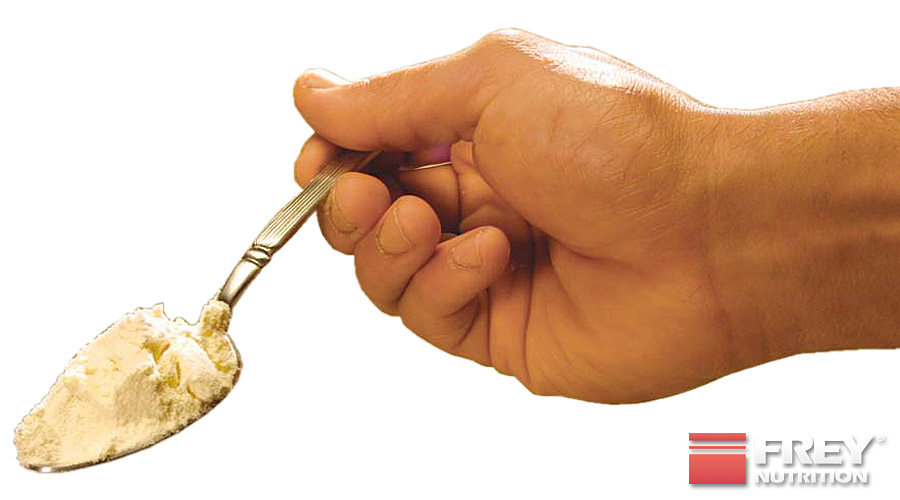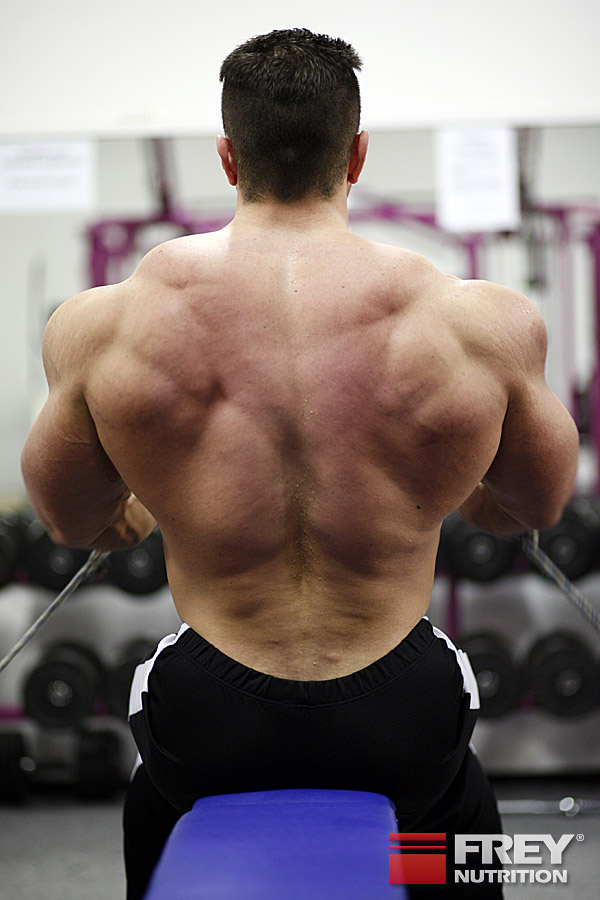ANSWER
!
An athlete's organism requires, among other things, an increased protein intake in order to maintain its performance and to avoid a catabolic process triggered by the increased willingness to perform.
This is especially true in bodybuilding, as muscle mass is largely made up of protein. Nothing works without protein!
Healthy kidneys and a high fluid intake are prerequisites for optimal protein utilization.
As far as your health concerns are concerned, the first thing to remember is that protein is protein - whether it is obtained from food (meat, eggs, cottage cheese, etc.) or taken in the form of amino capsules or protein powder. However, a distinction must be made between the quality of a protein, which is expressed by its biological value. This indicates how much of the protein consumed can be converted into the body's own muscle tissue. The higher the biological value, the better the protein is suited for this and the less of it you need overall to achieve anabolic effects.
"During mass phases I consume up to 5 g of protein per kg. My highest weight was over 148 kg, with about 13% body fat!" (Quote: A. Frey)
Starting with whole eggs, which have a biological value of 100, you can achieve significantly higher values by mixing them, thus providing the organism with better protein quality. Milk and wheat result in a value of 105, egg albumin and soy isolate 124. Whey protein, egg protein and potato protein even have a biological value of 136. You're doing well to try to combine many proteins together to increase the quality and anabolic effects.
"A good guideline for optimal fluid intake is one litre per 20 kg of body weight." (Quote: A. Frey)
With regard to possible damage to the kidneys, there are several studies that have shown that this does not occur, even after permanently increased protein consumption (see, for example, the following study:
D. KALMAN AND J. ANTONIO: "THE EFFECTS OF A HIGH PROTEIN INTAKE ON MARKERS OF HEALTH IN WEIGHT TRAINED ATHLETES", FASEBJ 200; 15(4):A631.14. ). However, this requires that your kidneys are 100 percent intact and that your fluid intake is high enough that the kidneys can excrete the excess protein without residue and without any problems. A good guideline for adequate fluid intake (primarily still water) in bodybuilding and weight training is one liter per 20 kilograms of body weight and an additional liter for every hour of exercise.
It would be simply nonsense to talk about the potentially harmful effects of protein supplements, while at the same time considering dietary proteins to be generally positive. As I said, protein is protein and there is no distinction in terms of health.
For beginners, I recommend a daily protein intake of about two grams per kilo of body weight, for advanced users three grams is appropriate, and for those on a diet, up to four grams. I consume about five grams of protein per kilo of body weight daily, and my kidneys are perfectly intact and I do not experience any side effects. On the page MACRONUTRIENTS: PROTEINS you will find further basic background information about proteins.
Despite the complexity of this issue, please also note that protein supplements have the following key advantages over dietary proteins:
The benefits of protein supplements
- low fat content
- low in cholesterol and purines
- long durability
- with vitamins and minerals
- simple and quick preparation
- different tastes
- high biological value
- easily digestible
- cheaper than low-fat meat
- as part of the "post-workout nutrition" cannot be replaced by anything
Nevertheless, I recommend a healthy mix of protein products,
AMINO ACID TABLETS and dietary proteins, as this provides your muscle cells with a large selection of proteins and significantly increases the quality by mixing the individual proteins.
When it comes to protein quality, you should pay particular attention to its biological value. With sensible protein combinations, you can significantly increase the protein quality. This improves the prospect of new muscle mass or maintaining existing mass.
You can find further information about biological value on the following page: INFORMATION ABOUT PROTEINS . Regarding the quality and properties of individual protein products, I can give you ARTICLES ABOUT THE DIFFERENT TYPES OF PROTEIN recommend.
I wish you a speedy recovery and much success in building muscle!













